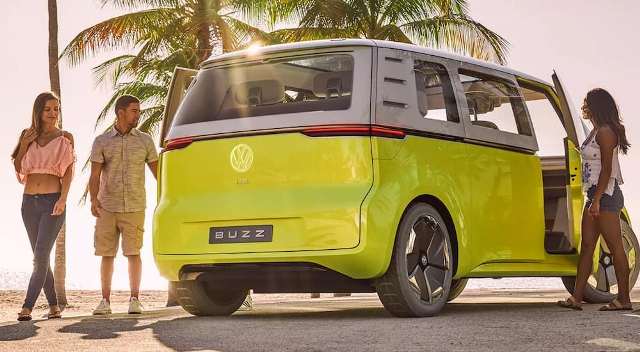German automaker Volkswagen Group has announced plans to invest up to $5 billion in U.S. electric vehicle (EV) maker Rivian. This significant investment is part of a newly formed joint venture (JV) between the two companies, aiming to share EV architecture and software development on an equal basis.
The funding will enable Rivian to accelerate the development of its more affordable and compact R2 SUVs, scheduled for an early 2026 release, as well as its planned R3 crossovers, according to CEO RJ Scaringe.
The partnership is also expected to help Rivian reduce operating costs by taking advantage of economies of scale in procuring supplies, including chips and other components.
This collaboration is a strategic move for Rivian, renowned for its R1S SUVs and R1T pickups, as it aims to achieve positive cash flow. The company will license its existing intellectual property to the JV, with the R2 being the first vehicle to incorporate software developed through the partnership. Volkswagen’s vehicles, including those under the Audi, Porsche, Lamborghini, and Bentley brands, will subsequently utilize this software.
For Volkswagen, this investment is viewed by analysts and investors as a solution to the company’s ongoing software challenges. Volkswagen’s software division, Cariad, established under former CEO Herbert Diess, has faced budget overruns and missed targets, contributing to Herbert Diess’ departure in September 2022.

Volkswagen will make an immediate $1 billion investment in Rivian through a convertible note, set to convert to stock on December 1, pending regulatory approvals. An additional $1 billion payment will be made at the JV’s inception, expected in the fourth quarter of this year, Reuters news report said.
Furthermore, Volkswagen has committed to investing $2 billion in Rivian stock, with $1 billion each in 2025 and 2026, contingent on Rivian meeting certain milestones. The German automaker will also provide a $1 billion loan in 2026.
Despite reporting losses of nearly $40,000 per vehicle delivered, Rivian has maintained a steadier position than other EV startups, such as Fisker, which recently filed for bankruptcy. Rivian has been actively reducing costs, renegotiating supplier contracts, and manufacturing some components in-house. A recent overhaul of its manufacturing process has significantly lowered material costs, according to Scaringe.
Rivian’s cash and short-term investments decreased by approximately $1.5 billion in the first quarter, bringing its total to just under $8 billion. Prior to the VW deal, Rivian had assured it had sufficient capital to launch the R2 SUVs.
Volkswagen reaffirmed its commitment earlier this year to launching 25 EV models in North America across its group brands by 2030, despite acknowledging a slowdown in the segment’s growth. The company’s shares have declined by about 3% this year.
Mavka Capital’s Golomb noted that Volkswagen has struggled to penetrate the large SUV and pickup segments in the U.S. and has not achieved significant success with its crossover electric SUV, the ID.4. However, the partnership with Rivian offers new opportunities for Volkswagen.
Volkswagen also announced that the Rivian software would be used by its off-road EV brand Scout, which is constructing a plant in South Carolina to produce pickups and SUVs intended to compete with Rivian’s offerings. The plant is expected to commence operations in late 2026.
Cariad, Volkswagen’s software division, has faced long-standing difficulties, partly due to the integration challenges posed by using various suppliers’ legacy systems. These issues have delayed the development of crucial models such as the Porsche e-Macan and Audi Q6 e-tron.
Although Volkswagen has introduced a new software architecture, vehicles featuring this technology will not be available until 2028. Nevertheless, Volkswagen asserts that Cariad will continue to play a central role in scaling software across its brands.

